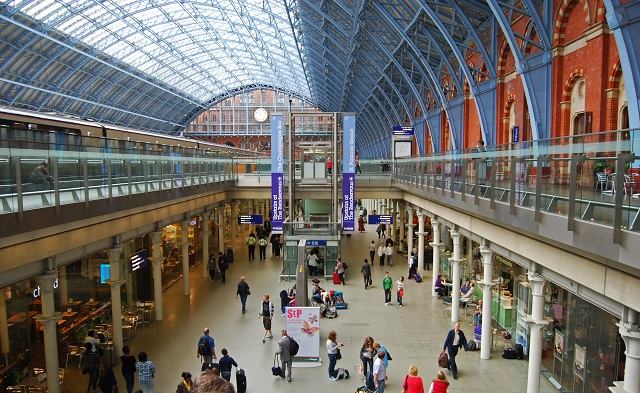The Independent business section published a shock exposé on privatised British industry today, revealing that after decades of being subsidised by the taxpayer national infrastructure, including the railways, is now turning a profit. This, they paradoxically claimed, would be a “boost” to those who argue the railways should be renationalised.
The investigation into the ownership of British Train Operating Companies (TOCs) and the dividends they paid to parent companies by the Independent found that 20 TOCs are foreign owned or operated, and have taken £102 million in dividend payments from these companies in the past two years. These figures have been framed against ticket prices rising above the rate of inflation, but the newfound ability of Britain’s railways to turn a profit has a lot less to do with fare rises, and more the staggering growth of traffic.
The number of passengers travelling on Britain’s railways collapsed over the 20th century to the extent that the number of rail journeys taken a year in the 1980s was less than in the 1880s. A combination of car ownership and government incompetence led to a significantly diminished railway being privatised in the 1990s, which had been starved of serious investment for years.
The miracle of privatisation was the sudden growth of passenger traffic, which has grown faster over the past twenty years than any other time in history. Speaking to Breitbart London, a source at the Rail Delivery Group, the organisation that works with infrastructure and train companies to provide services said of this growth: “Operators have used commercial acumen and innovation to attract more passengers and goods onto the railway. The subsequent growth in revenue has played a crucial role in enabling government to invest record sums through Network Rail.”
In reality the TOCs which the Independent crticises as ripping off British commuters operate on extremely narrow profit margins – typically around 3 percent. Indeed, the amount of money that private train companies pay back to the government has grown by 400 percent since the start of privatisation to £1.96 billion a year, a figure which compares favourably with the £102 million dividend claimed by the Independent.
This money, which has come overwhelmingly from growing passenger numbers (which have doubled since the end of nationalised train operators) is invested back into the network. The figures involved are significant – the government owned Network Rail spends £27 million a day repairing and replacing track, signals and stations.
The Rail Delivery group said of this investment: “Britain’s railway has been transformed in the last 15 years into the best in Europe thanks to a winning combination of private sector innovation and government policy, and our aim is to make it even better for passengers and businesses.
“This has happened here while public funding has declined to the same level as in 1994-95 in real terms, the last year of a publicly-run railway, and where financial support per passenger is now the same or lower than in nine of the 12 years leading up to privatisation.
“Other European countries have invested heavily in their railways but do not benefit from the same vibrant rail market, and so do not come close to matching GB rail’s success.”
The Independent claim their figures “will fuel calls for the Government to rethink its privatisation agenda”, and “boost” those who call for renationalisation. Labour has already made overtures in that direction this year, and Ed Miliband has reportedly met with Union representatives who are agitating for the whole railway to be taken back into public ownership.
Despite this, it appears that commuters have noticed and appreciate the investment driven by private enterprise so far. A recent European Union research paper found that not only are British rail users are the most satisfied, but they also among the most likely to travel by train regularly of the 26 nations examined.

COMMENTS
Please let us know if you're having issues with commenting.